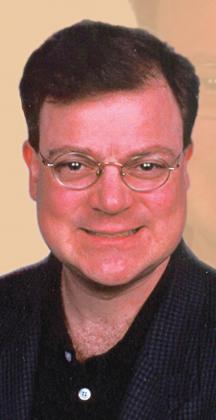
“What do you mean that America’s youth know little about George Washington, except that he was a slave owner?”
“Few schools teach children about George Washington anymore. And as more towns remove Confederate statues from public land, related news stories are emerging that focus on the complications of historical figures, such as Washington, who owned slaves.”
“As we apply contemporary morality to historical figures, I can understand how things might get complicated. But Washington was still one of our greatest leaders!”
“It’s true. Many scholars and historians rank him as our greatest president and one of the primary reasons the experiment called America was able to work. His story is one and the same with America’s story.”
“Go on.”
“From early on, Washington was a natural leader. He had an imposing presence, standing nearly 6-foot-3 at a time when the average man was about 5-foot-8. And he was invincible. During one battle in the French and Indian War, four bullets ripped his coat and two horses were shot from under him, yet he was unscathed.”
“He was our first real action figure!”
“He represented the rebellious American spirit, you see, and he led the charge to break away from the restrictions and regulations of the British. In 1775, he took command of our motley crew of an army and led it in a war that lasted six grueling years. Many historians believe that no other leader could have won this war.”
“I read that he was so popular after winning the war, he could have become a king, but wanted nothing to do with that.”
“That is also true. He used his immense popularity to help establish our Constitution, which grants power to us little folks. Then he reluctantly became our first president. He wanted nothing to do with that job, either, but knew our fledgling government needed his leadership to survive.”
“Well, we did survive and went on to become quite a success story. What did Washington do after serving his country for so many years?”
“He returned to his beloved Mt. Vernon to farm and enjoy life. He devoted himself to innovating new farming techniques and he also owned one of the largest whiskey distilleries in the country. Which brings us back to the domestic slaves who helped him run his vast business operations.”
“Go on.”
“History.com says Washington’s views of slavery evolved over his life: ‘During the Revolutionary War, he became more uncomfortable with the thought of purchasing and owning other human beings. But though he supported abolition in theory, he never tried it in practice.’”
“I thought that upon his death, he freed the slaves who worked on his plantation.”
“According to History.com, he did promise in his will to free all of his slaves upon his death. But only one slave went free initially.”
“Why the heck did that happen?”
“History.com says that it had to do ‘with law, marriage and a family that disagreed with their patriarch’s evolving views on slavery.’ Washington’s will also stipulated that his slaves would remain with his wife, Martha, for the rest of her life.”
“But Martha freed them?”
“History.com says that she may have done so either because they were expensive to keep or because she feared they would poison her. She freed the rest of his 123 slaves one year after his death, though she kept 153 of her own slaves.”
“I see what you mean by our history being ‘complicated.’”
“Look, Washington was a great man by multiple measures. But his thoughts on slavery were contradictory. The fact is, according to MountVernon.org, he was America’s only slave-owning Founding Father to free his slaves in his will!”
Tom Purcell, author of “Misadventures of a 1970’s Childhood” and “Wicked Is the Whiskey,” a Sean McClanahan mystery novel, both available at Amazon.com, is a Pittsburgh Tribune-Review humor columnist and is nationally syndicated exclusively by Cagle Cartoons Inc. Send comments to Tom at Tom@TomPurcell.com.
